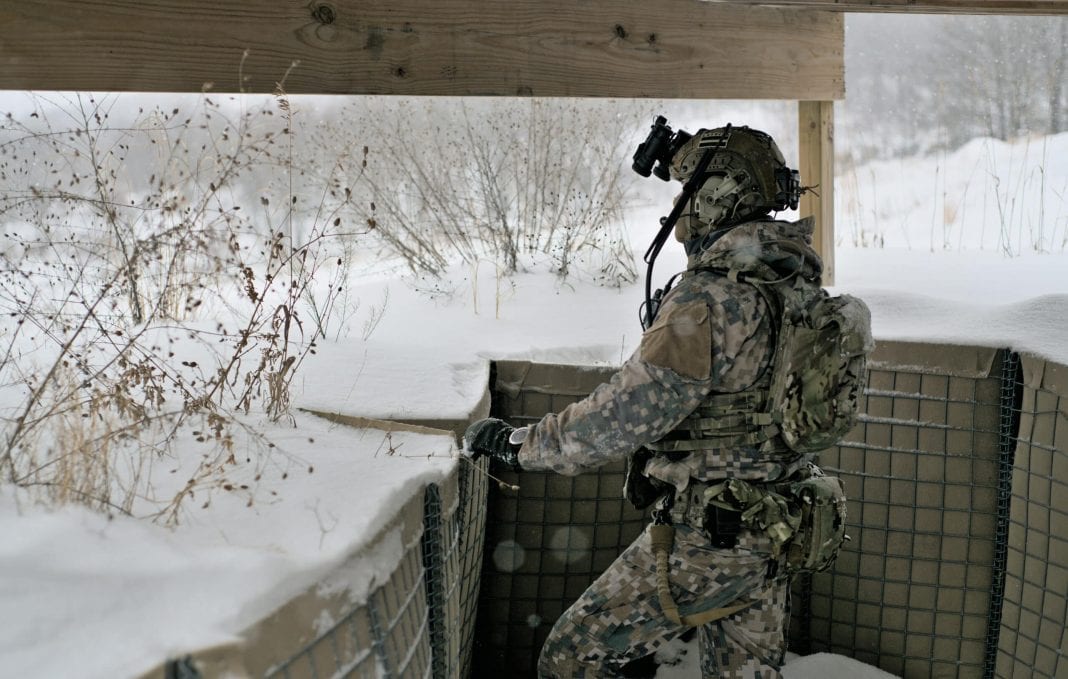Latvia, a NATO member, and Russia have a tense relationship gripped by Russian meddling, since the former broke from the Soviet Union in 1991. Exacerbated by the Russian invasion of Ukraine, many nations that share a border with Russia are wary of their actions. Latvia is closely in support of Ukraine.
Latvia has also been on the receiving end of Russian disinformation and psychological operation campaigns, even warranting an official response by NATO in the region to combat it. Given the current climate of instability in the region, it is likely that Russian influence and operations in the Baltic state will increase in the next 24 months.

Key Judgment 1: In the next 24 months, it is highly unlikely that Russia will launch military offensives against Latvia.
- Latvia is a member of NATO, and houses a complete Enhanced Force Presence and Force Integration Unit close to the capital of Riga. These units have been stationed in the Baltic states to ward off any Russian aggression after the Warsaw Summit in 2016 (Source). The Enhanced Force Presence in Latvia is a mix of infantry, mechanized, and reconnaissance units from participating NATO countries (Source).
- In working closely militarily with neighboring Baltic countries, Latvia is part of the Baltic Joint Military Staff (source) the Baltic Naval Squadron (BALTRON) (source), as well as the Baltic Air Surveillance Network (BALTNET) (Source). These are linchpins to the Baltic states’ shared notion of mutual defense against Russia, and these institutions serve as blockades to Russian attacks.
- It is unclear what Russia’s exact motivation in Ukraine and the Baltic states, but a full-scale war with Latvia and NATO is not within reason for the Russian state within the next 24 months. Russia has faced clear setbacks in its invasion of Ukraine, primarily through Ukrainian defensive tactics and NATO countries responding with supplying Ukraine. Due to this, direct action against NATO-allied nations and NATO is highly unlikely.
Key Judgment 2: In the next 24 months, it is highly likely that Russia will heighten their misinformation, subversion and political measures within Latvia’s social and political systems.
- Russia has historically launched misinformation campaigns against the almost 25% Russian-speaking/of descent population in Latvia. The Baltics have been an interesting battleground of hybrid warfare, and Latvia is no exception. Over the past 4 years, Latvia has claimed election interference from the GRU (source), Russian bots flooding Latvian social media channels (source), as well as hacks on websites displaying the text: “Fellow Latvians, this concerns you. The Russian border has no limits!” (Source)
- Disinformation measures by Russia have prompted NATO to employ “techcamp” within Latvia. Accordingly, this method actively includes recruiting members of the Russian-speaking minority to speak out against Russian propaganda on Latvian social media (Source).
- In early March, Latvia’s prime minister urged tech companies like Meta and Google to curb disinformation coming from Russia in light of the invasion in Ukraine (Source). This heightened the sense of panic among the Baltic states reflects the vulnerability of social media to targeted disinformation campaigns from the Russian state – and indicates a critical point that Russian entities could strike.
Key Judgment 3: In the next 24 months, there is a realistic probability Russia may provide support for pro-Russian political parties within Latvia, such as Harmony, as well as Russian-speaking ethnic minorities in the country.
- The Harmony Party in Latvia has official ties to Moscow (Source). On top of this, it is also rife with corruption and scandals, down to local-level governments (Source). The party represents Latvia’s Russian speaking ethnic minority population, and advocates for closer ties with Russia. Due to Russia’s use of Latvia as a money laundering waystation, it has been dubbed the “Russian Laundromat” (Source).
- Harmony almost took 20% of the parliamentary vote in October of 2018, receiving the majority seat (Source). With a pro-Russian party in power, the situation in Latvia is prime for political coercion from the Kremlin and Russia’s United Way party.
- Compounding with pressure from the situation in Ukraine, the next two years could see Latvia’s politicians, particularly those who represent Russian speaking ethnic minority populations moving closer in parity to the Kremlin.
Intelligence cut-off date: 6th of May 2022

